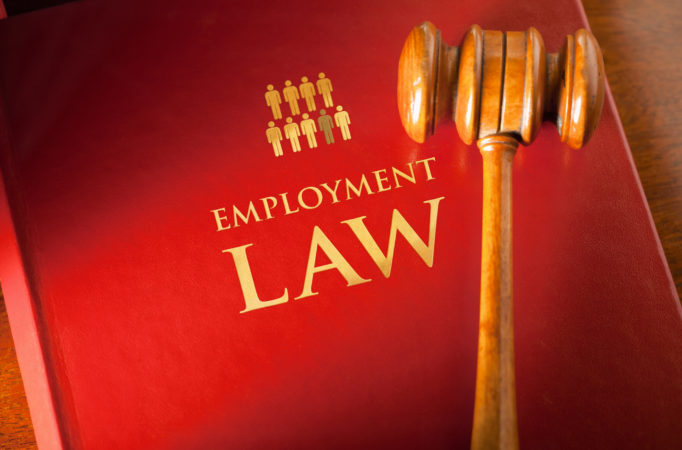Employment & Labor Law
Coronavirus Workplace Infection Control Policy
The Pennsylvania Governor added new information on Friday (May 8, 2020) to the phased resumption or continuation of business and organization activities. This includes mandated steps that employers must follow as they re-open or continue their operations. Employers are required to appoint a Pandemic Safety Officer to carry out the required actions. Policies on coronavirus spread prevention measures must be in place and communicated to employees. We developed the below-linked sample workplace policy to help you in these challenging times.
Key workplace requirements for Pennsylvania employers operating their businesses or organizations now is the Commonwealth Secretary of Health’s Order mandating numerous actions–see our prior report summarizing and providing a copy of it. These requirements apply in the red and yellow phases of maintaining or resuming activities. It is likely that many of these requirements will remain for some time in the green phase, at least until an effective vaccination and so-called “herd immunity” is achieved. A lot of employer steps are required, including informing employees of your policy in compliance with the Department of Health Order. To assist you and your now required Pandemic Safety Officer to meet this requirement, we prepared not only a sample workplace policy for your review and use, but also some management instructions and optional material to consider for your policy.
Different organizations will have varying physical set-ups, logistics, needs, etc. In light of this, if you use our sample policy, it is important and necessary that you review and tailor it to the specifics and culture of your organization and workplace. You may want to add points about specific issues or processes in your organization. Be careful eliminating items as much of the policy reflects requirements in the Department of Health Order governing Pennsylvania employers. There are also choices you should make regarding the policy, such as whether and what to do beyond what is required or included in the policy. A key choice employers will need to make is how to implement the Pennsylvania Secretary of Health’s Order requiring employers to check employee temperatures for at least fourteen days following the known presence of someone in the workplace who has tested positive for or presumed to have COVID-19. We are concerned about this temperature check, when done in the workplace, challenging the social distancing guidelines, particularly for the person performing the temperature checks on employees. The Pa. Department of Health has changed its position to now permit employers to have employees check their own temperatures at home rather than requiring the employer to check each employee at the workplace before they enter. Thus, you can, as of now, elect to do the temperature checks at the workplace before employees are permitted to go to work or require employees to do it themselves at home before coming to work. If you have employees self-check their temperatures at home you must set up a confidential procedure for employees to report their temperature to the employer at the start of each work day. However done, any employee with a temperature of 100.4 degrees Fahrenheit or above is not to come into or stay in your facility. If you do the temperature checks in the workplace, you can assign employees to do the checks or contract it out to someone else (such as a trained healthcare professional). There are various thermometer options, including ones using thermal imaging that don’t require physical touching of the employee, along with some that have remote controls to allow the monitoring person to operate the thermometer from a distance (these are far more expensive such that they may only make sense for a larger workforce).
The Pa. Order does not require employers to do temperature checks on visitors, as it is assumed that persons such as those making deliveries will undertake temperature checks through their employer as required. The Order does not call for temperature checks of customers or clients (which means it is not required but also not forbidden). But you may be required to do temperature checks on contract workers, such as temporary agency workers or consultants, who work alongside your employees. If you lease or maintain work space in a building with other tenants, you should notify the building owner when you become aware that someone has been in your workplace who is confirmed or presumed positive for COVID-19, so the other tenants can be informed. You should also notify any contractors, such as those doing cleaning or maintenance, that someone was in your workplace who tested positive for or is presumed to have COVID-19.
You should periodically review your workplace policy and update it as new CDC, state or local guidelines or orders will be forthcoming (current 5.8.2020 CDC guidelines can be found here, please be sure to check for updates). We recognize that you need to put something in place now that you can revise as you proceed. You may also adjust the tone based on your workplace and workforce.
One question that may arise is whether employees are required to be paid for the time they are getting their temperatures checked. Hopefully in most workplaces this time is too small to be a concern. It is also our view that in most situations pay will not be due for the time taken by an employee doing a temperature check; but, the wage and hour law analysis is fairly complicated and subjective, such that this is not a certainty and would require assessment of your particular circumstances.
Employers in states other than Pennsylvania can consider this sample policy for their use but should understand that, based on the Pa. Health Department Order rather than directives from their state, it must be adjusted to your state requirements.
We stand ready to help you review and tailor the workplace policy to your circumstances, as well as to handle employee issues that arise in implementing it. In addition, our firm’s IT staff is working on a process for confidential documentation of temperature reads about which you can contact us if interested.
This sample workplace policy, management instructions, and optional policy points are available in the links below.
Coronavirus Workplace Infection Protection Policy .pdf
Management Instructions re COVID-19 Workplace Policy.pdf
Optional Additions to COVID-19 Workplace Policy – Temperature Checks.pdf
Please feel welcome to contact the authors of this policy and related material, Craig M. Brooks and Catherine S. Loeffler, with any questions.
About Us
Claims and suits brought against employers by employees are a large part of the cases being handled by the Employment lawyers at Houston Harbaugh. We focus on assisting and counseling our clients to be positioned to avoid claims, and if the claims are brought, to be prepared to defend against them.

Craig M. Brooks - Practice Chair
An employment and labor attorney, Craig primarily represents management, providing advice on how to handle employee issues and actions, as well as defending or pursuing claims in court and before government agencies on matters.
An employment and labor attorney, Craig primarily represents management, providing advice on how to handle employee issues and actions, as well as defending or pursuing claims in court and before government agencies on matters including:
- Employment discrimination claims
- Wage and hour matters
- Sexual and other harassment investigations and claims
- Family and Medical Leave Act
- Wrongful discharge
- Labor/Union matters
- Restrictive covenants
- Affirmative action programs
- Defamation
- Privacy
Craig also represents individuals with advice and pursuing claims arising out of their employment.

